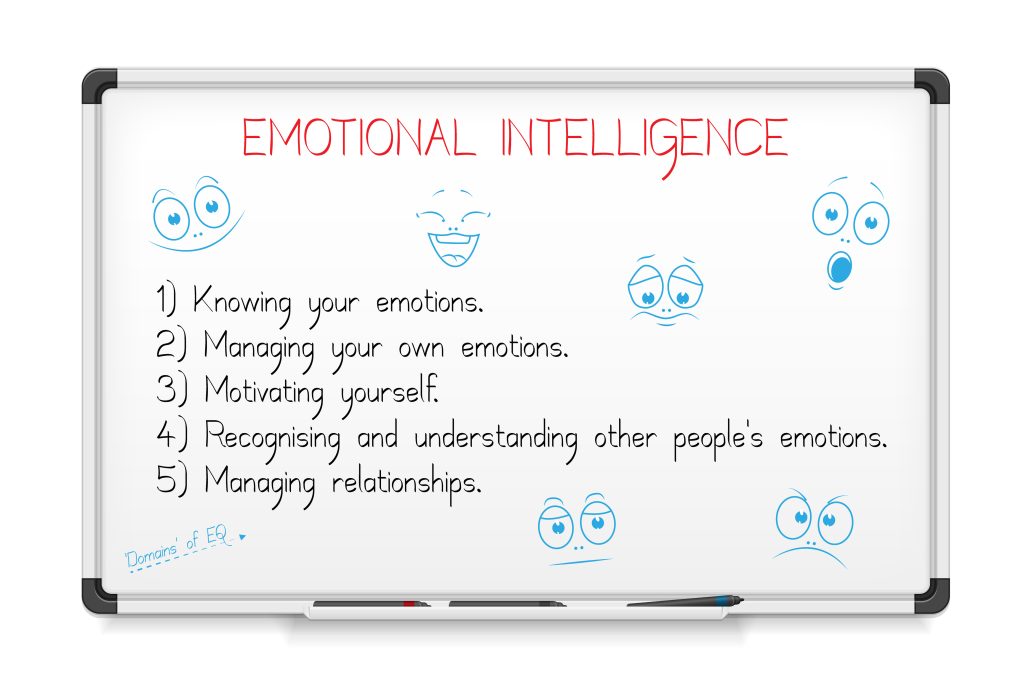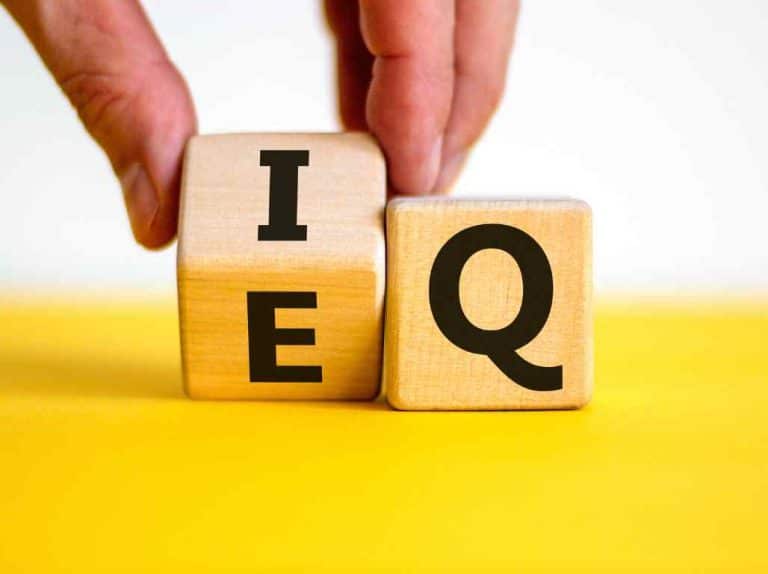Emotional Intelligence Defines Your Emotional Health
What is emotional intelligence? EQ= Emotional Quotient It’s not an AI thing, even though it may sound techy. Intelligence is your ability to acquire and use knowledge. What do you know and what can you learn? In this case it’s about knowledge about your emotional self. And yes you have an emotional self. Are you a sad or happy person? Do you wake up with enthusiasm for the day to come? How do you relate to other people? You have a physical self, which is what other people see, and an emotional self, which is inside of you. Other people know how you behave, but not how you feel. Emotions are your feelings. In fact, emotional intelligence is the way you relate to the other people around you, and also how much awareness you have about yourself.
Are You Emotionally Healthy

What Is Emotional Intelligence or EQ
EQ or Emotional Quotient can be defined as the ability to recognize and understand emotions, both in yourself and in other people. It involves managing emotions, using them to guide our thinking and behavior, and effectively handling your relationships with other people. There are 5 core components of EQ:
- Self-awareness: Do you understand your own emotions, strengths, weaknesses, and values? It involves being in tune with our thoughts and feelings and understanding how they impact our actions.
- Self-management: Self-management involves effectively managing your emotions and impulses. It requires being able to control negative emotions, adapt to changing circumstances, and maintain a positive outlook even in challenging situations. This is challenging for everyone at times, and especially for teens.
- Motivation: This is about self motivation. Can you stay focused and get your work done, be kind to others, stay on schedule?
- Social awareness: This is the empathy component. Social awareness is about understanding the emotions, needs, and concerns of others. It involves empathizing with others, being attuned to their non-verbal cues, and appreciating diverse perspectives.
- Relationship management: Relationship management focuses on how you build and maintain healthy relationships. It includes effective communication, conflict resolution, teamwork, and inspiring and influencing others positively.
The Benefits of Understanding Yourself
Emotional intelligence has numerous benefits, both personally and professionally. Here are a few key advantages:
- Improved self-awareness: By understanding our own emotions and triggers, we can make better decisions, manage stress effectively, and take actions aligned with our values and goals.
- Enhanced communication: Emotional intelligence enables us to empathize with others, listen actively, and communicate more effectively. It fosters understanding, collaboration, and conflict resolution, leading to healthier relationships.
- Leadership effectiveness: Leaders with high emotional intelligence inspire trust, motivate their teams, and create a positive work environment. They are skilled at resolving conflicts, handling crises, and adapting to change.
- Increased resilience: Emotional intelligence helps us bounce back from setbacks and navigate challenges with resilience. It enables us to stay composed under pressure, find solutions, and maintain a positive mindset.
How Can You Develop Your EQ
While some people naturally have empathy and self motivation and can relate well to others, you can become more aware over time. Here are some strategies to enhance your EQ:
- Self-reflection: Take time for introspection and self-reflection. Identify and acknowledge your emotions, strengths, weaknesses, and patterns of behavior. Regularly assess your progress and areas for improvement.
- Practice empathy: Put yourself in others’ shoes and try to understand their emotions, perspectives, and needs. Listen actively, be attentive to non-verbal cues, and show genuine empathy and understanding.
- Manage stress: Develop healthy coping mechanisms to manage stress and regulate your emotions. Techniques such as deep breathing, mindfulness, and physical exercise can help reduce stress levels.
- Seek feedback: Request feedback from trusted individuals about your emotional intelligence skills. Their insights can provide valuable perspectives and areas for growth.
- Continuous learning: Read books, attend workshops, and engage in courses that focus on emotional intelligence. Learn about different communication styles, conflict resolution techniques, and relationship-building strategies.
Applying Emotional Intelligence:
To leverage emotional intelligence effectively, apply it to various aspects of your life:
- Work environment: Use emotional intelligence to build positive relationships with colleagues, managers, and clients. Communicate effectively, resolve conflicts constructively, and demonstrate empathy and understanding.
- Leadership: If you are in a leadership position, apply emotional intelligence to inspire and motivate your team. Foster a supportive work culture, provide constructive feedback, and create opportunities for growth and development.
- Personal relationships: Use emotional intelligence to deepen connections with family, friends, and loved ones. Practice active listening, validate emotions, and be mindful of others’ needs.
- Self-care: Apply emotional intelligence to take care of your own well-being. Recognize when you need to set boundaries, seek support, or practice self-compassion.
Conclusion:
Emotional intelligence is a crucial skill in today’s world. By developing and applying emotional intelligence, we can enhance our self-awareness, improve our relationships, and achieve greater success in our personal and professional lives. Through self-reflection, empathy, and continuous learning, we can nurture this invaluable skill and make a positive impact on ourselves and those around us. Let emotional intelligence guide you on the path to a more fulfilling and harmonious life.
More Articles about Emotions
Why It’s Important To Love Yourself
Four Tips To Help You Manage Your Emotions
Understanding Emotional Triggers: Our Feelings Have Power





















